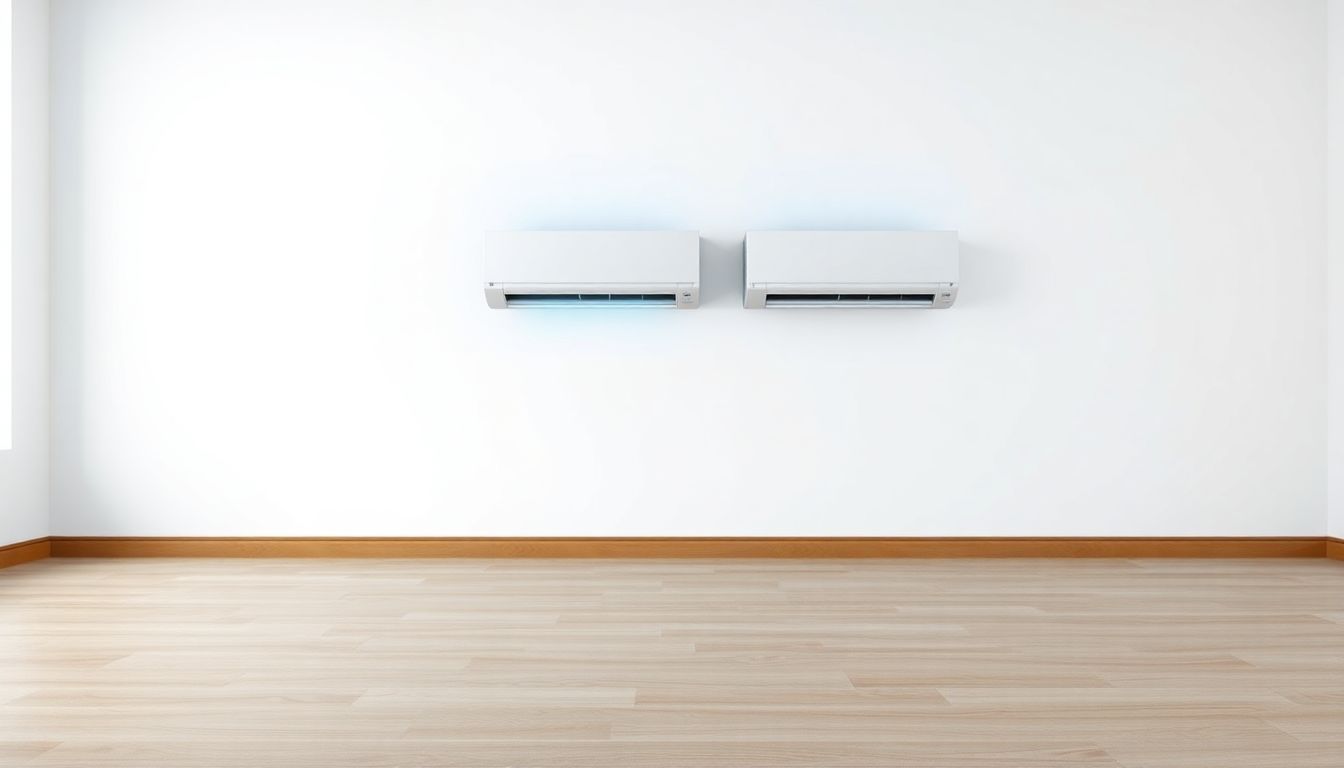
Introduction
Imagine slashing your energy bill while staying cool. Sounds good? The secret might be in your AC. Air conditioners keep us comfy during hot days. But, they can also guzzle energy. Two main types exist: inverter and non-inverter models. This article breaks down the differences between them. We will explore energy efficiency, cost, performance, and noise. This will help you choose the best cooling solution for your needs.
How They Work: Inverter vs. Non-Inverter Technology
The tech inside your AC makes all the difference. Inverter and non-inverter ACs work in very different ways. These differences affect their energy use and performance.
Inverter AC Operation
Inverter ACs use a variable-speed compressor. Think of it like a car's accelerator. It can speed up or slow down as needed. This is made possible by converting AC power to DC power. This lets the AC adjust its cooling output. It gradually increases or decreases to keep the temperature steady.
Non-Inverter AC Operation
Non-inverter ACs have a fixed-speed compressor. It's like a light switch: on or off. It uses AC power directly. When it gets too warm, the AC turns on full blast. Once it's cool enough, it shuts off completely. This on/off cycle wastes energy.
Energy Efficiency and Cost Savings
Saving money is always a good thing. Inverter ACs can help you do that. Let's look at the financial perks.
Initial Cost Comparison
Inverter ACs usually cost more upfront. That is compared to non-inverter types. Factors like brand, features, and size affect the price. However, the long-term savings can make up for it.
Long-Term Energy Savings
Inverter ACs consume less energy over time. They adjust their cooling. This prevents them from wasting power. SEER and EER ratings measure efficiency. Higher ratings mean more savings. You might save up to 30-50% on your energy bill with an inverter AC.
Calculating Your Potential Savings
Want to know how much you could save? Here's a simplified formula. First, figure out your AC's power consumption in kilowatts (kW). Then, multiply it by the hours of daily use. Next, multiply by the number of days in a month. Finally, multiply by your electricity rate per kilowatt-hour (kWh). Compare the result with an inverter AC's consumption. This will give you an estimate of potential savings.
Performance and Cooling Capabilities
How quickly and evenly does your AC cool? Inverter and non-inverter models differ in performance.
Cooling Speed and Power
Inverter ACs often cool faster. They can run at a higher capacity initially. This brings the room temperature down quickly. Non-inverter models take longer to reach the desired temperature.
Temperature Consistency
Inverter ACs maintain a more consistent temperature. The variable-speed compressor avoids big swings. Non-inverter models cycle on and off. This can cause temperature fluctuations.
Noise Levels and Comfort
A noisy AC can be annoying. Here's how inverter and non-inverter models compare.
Compressor Noise
Inverter AC compressors are generally quieter. The gradual adjustments minimize noise. Non-inverter compressors can be loud when they start and stop.
Fan Noise
Fan noise is also a factor. Some models include fans that create excess noise. Inverter ACs often have quieter fan designs. This contributes to overall comfort.
Choosing the Right AC for Your Needs
Picking the right AC depends on your situation. Consider these factors.
Factors to Consider
Think about these things: room size, budget, usage frequency, and climate. All affect your choice.
Inverter AC: Ideal Scenarios
Inverter ACs are great for large rooms. They are also good if you use AC frequently. They are a solid choice for people who are sensitive to temperature changes.
Non-Inverter AC: Suitable Scenarios
Non-inverter ACs work well for small rooms. They are a good fit for occasional use. They also suit tighter budgets.
Conclusion
Inverter and non-inverter ACs each have their pros and cons. Inverters save energy and provide consistent cooling, although they are more expensive. Non-inverters cost less upfront but use more energy. Think about your needs and pick the right AC. Doing so will deliver the best comfort and savings.






0 Comments